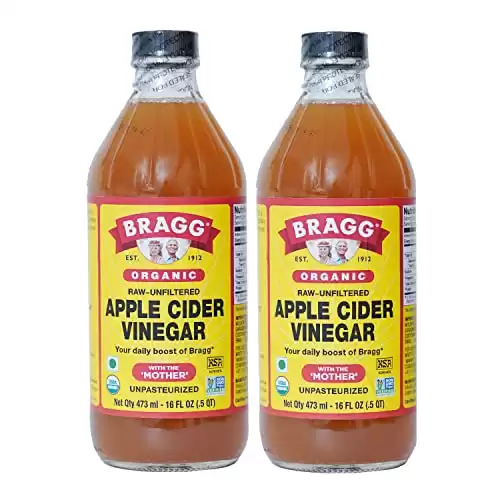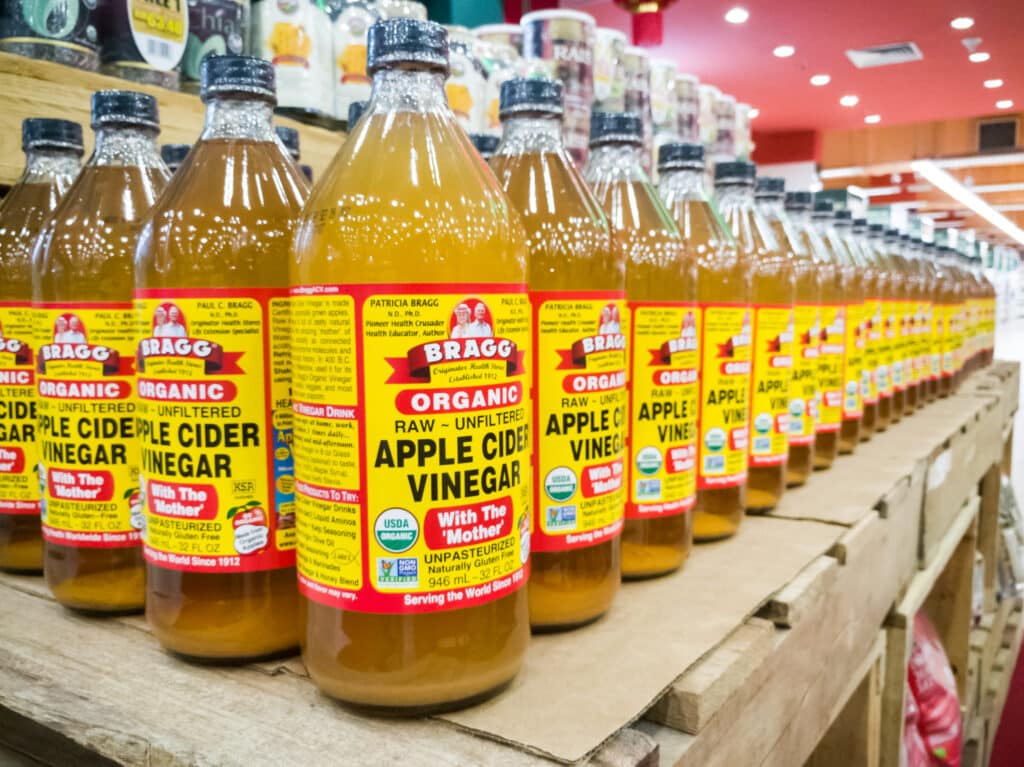
Apple cider vinegar is a popular kitchen staple used for its numerous health benefits and versatile culinary applications.
Many people wonder if this natural product ever goes bad or if its long shelf life really is indefinite. The good news is that apple cider vinegar is, in fact, self-preserving and should never go bad, as it contains natural acidity that discourages bacteria growth.
While apple cider vinegar doesn’t technically expire, its quality may decline over time depending on storage conditions. To maintain the best possible taste and consistency, it’s important to store the vinegar in a very cool and dark place, away from direct sunlight. When properly stored, apple cider vinegar can retain its quality for a significant period of time, offering endless uses in your cooking and self-care routines.
Understanding Apple Cider Vinegar
Apple cider vinegar is a popular ingredient in the culinary world and a staple in many households. The following information will provide insights into its production process, some health benefits, and the various uses of apple cider vinegar.
Production Process
Apple cider vinegar is made from fermenting fresh apples. The fermentation process involves the fermented apples through a series of steps:
Crushing apples to extract the apple juice
Allowing the juice to ferment, which converts the sugars into alcohol
Introducing acetic acid bacteria to the mixture, which transforms the alcohol into acetic acid, malic acid, and citric acid – the key components of vinegar
The acetic acid content provides apple cider vinegar with its distinct taste and numerous health properties.
Health Benefits
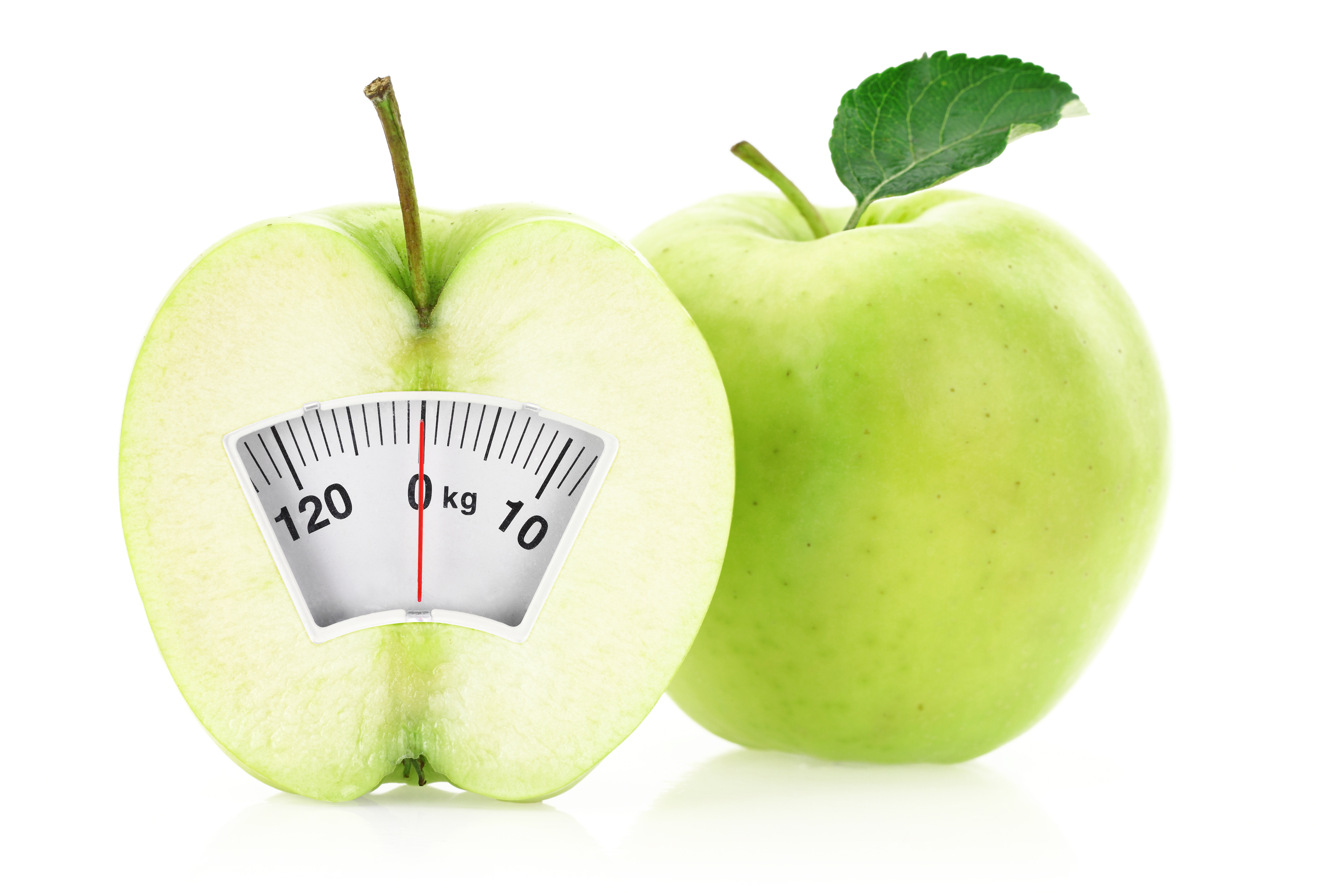
While research on apple cider vinegar is limited, there are several potential health benefits associated with its use. These include:
Weight loss: Some studies suggest it may help to increase feelings of fullness and reduce calorie intake.
Blood sugar regulation: Vinegar has been shown to improve insulin sensitivity and lower blood sugar levels after meals.
Antimicrobial effects: The acetic acid content can help to combat harmful bacteria and has even been used as a natural preservative.
Acid reflux: It is traditionally believed taking ACV helps control heartburn, but scientific evidence is sparse
It is important to note that more extensive research is needed to confirm these health benefits, and moderation is key when incorporating apple cider vinegar into your daily routine.
Uses
Apple cider vinegar has a wide range of uses both in the kitchen and for personal care. Some popular uses include:
Salad dressing and marinades: Its tangy flavor can enhance the taste of various dishes.
Household cleaning: A diluted solution can help to remove stains and deodorize surfaces.
Haircare: Applying diluted vinegar to the scalp can balance pH and improve hair health.
With such versatility, apple cider vinegar continues to be a valuable addition to any pantry.
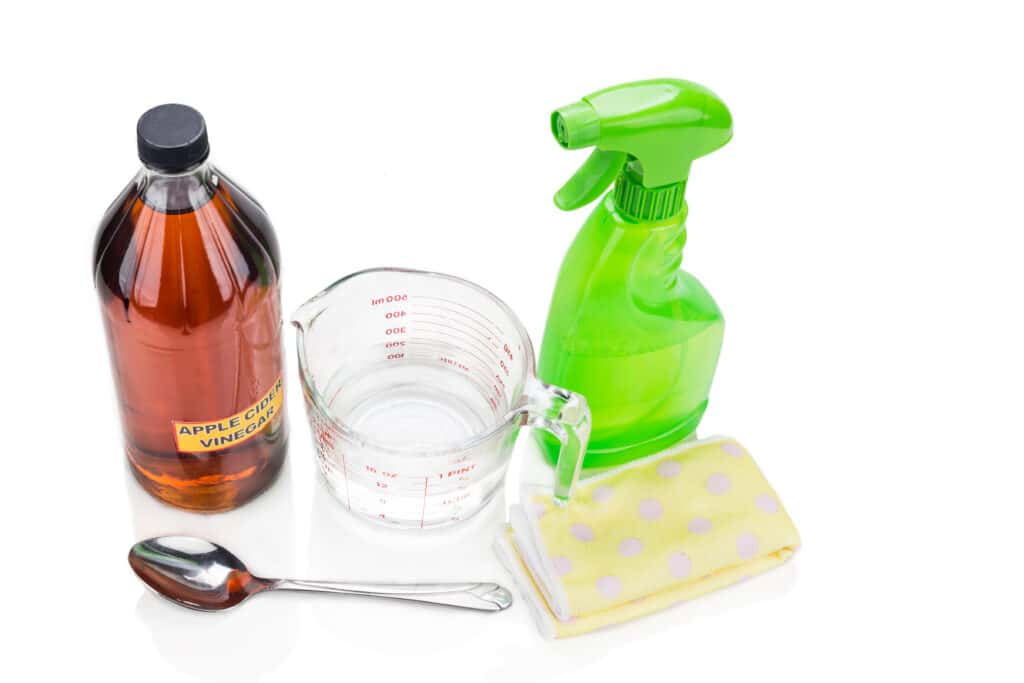
Does Apple Cider Vinegar Go Bad?
How long does Apple Cider Vinegar last? Apple cider vinegar is a versatile and widely used ingredient in various recipes, natural remedies, and household cleaning solutions. One common question that arises is whether apple cider vinegar goes bad or spoils over time. The answer is that, by its acidic nature, apple cider vinegar is self-preserving and should never go bad. However, it can age and undergo some harmless physical changes.
Shelf Life: How Long Does Apple Cider Vinegar Last?
The nature of vinegar makes it a self-preserving pantry staple, which means it generally never sours or expires. Technically, your apple cider vinegar can never go bad once opened, so you can continue to use that old bottle you uncovered from your pantry.
That being said, over time, unfiltered apple cider vinegar may develop a cloudy substance called “mother,” which is a byproduct of the fermentation and aging process. This substance contains good bacteria and healthy enzymes, so it’s not harmful to consume. In fact, many people believe that apple cider vinegar with the mother is even healthier than its filtered counterpart.
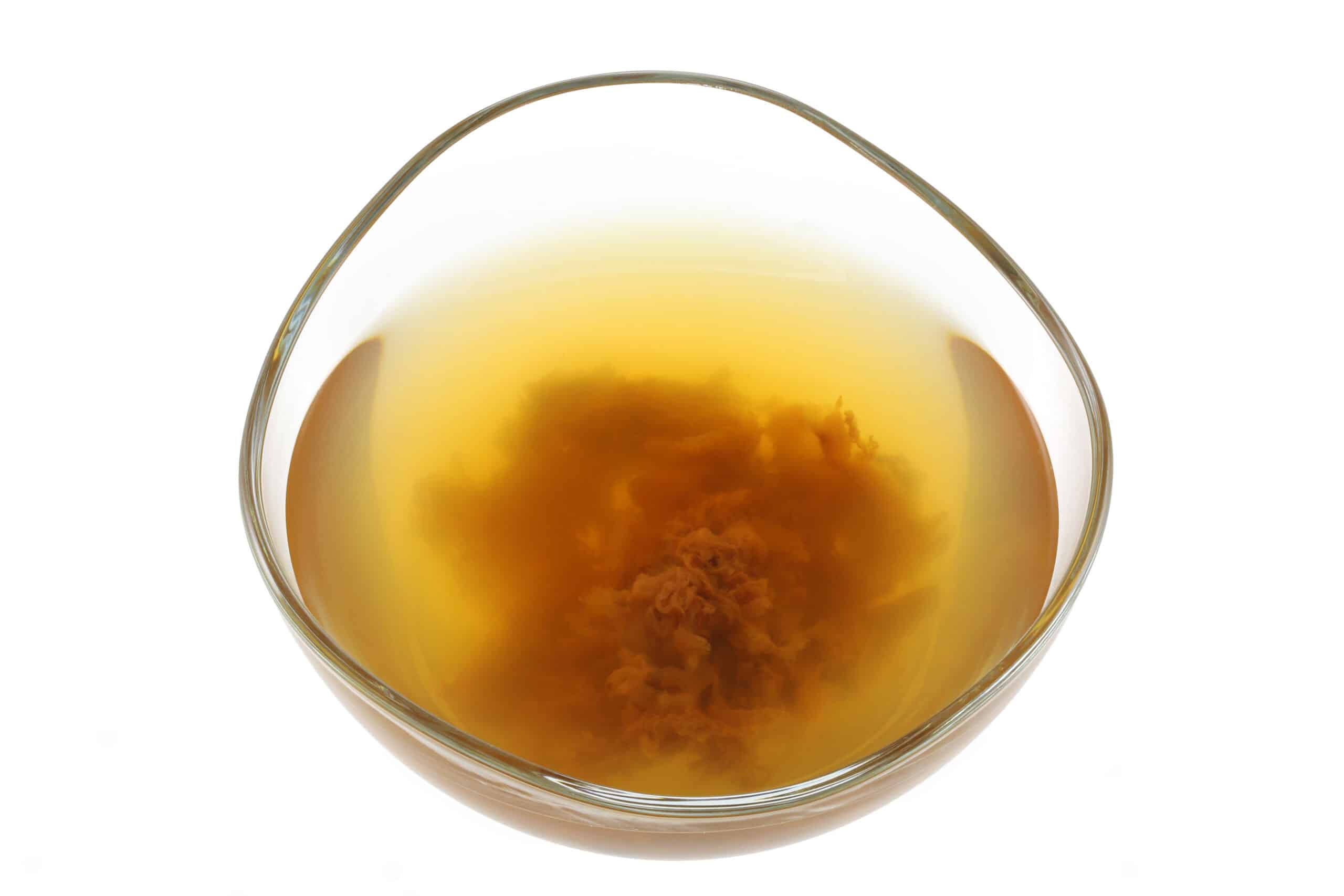
Factors Affecting Spoilage
Although apple cider vinegar has an indefinite shelf life, certain factors can affect its quality and appearance. To maintain its quality, it’s essential to store the bottle of apple cider vinegar in a cool, dark place away from direct sunlight. Additionally, keeping the bottle tightly sealed and capped will help prevent any potential contamination or evaporation.
It’s also worth noting that if the apple cider vinegar expire or undergoes any drastic changes in color, smell, or taste, you should use your judgment to determine if the vinegar’s taste is still suitable for consumption or use. In most cases, though, apple cider vinegar remains a safe and beneficial product to have on hand.
How to Store Apple Cider Vinegar Properly
Proper storage is essential to maintain the quality and taste of apple cider vinegar. By following some simple guidelines, you can ensure that your store apple cider vinegar remains in optimal condition.
Storage Conditions: Do you need to refrigerate Apple Cider Vinegar?
Apple cider vinegar should be stored in a cool, dark place away from direct sunlight and heat. A kitchen cupboard or pantry is an ideal location. To maintain its quality, make sure the vinegar is in an airtight bottle or container with a tight-fitting lid.
While apple cider vinegar doesn’t require refrigeration, storing it in the fridge can help preserve its flavor and quality even further. Just like lemon juice, make sure to keep it tightly sealed to prevent any cross-contamination from other strong-smelling foods in the fridge.
Signs of Spoilage
As mentioned earlier, apple cider vinegar is acidic and self-preserving and doesn’t expire due to its acidity. However, sometimes the appearance and quality may change over time. The following are some harmless physical changes that may occur:
Cloudiness or sediment at the bottom of the bottle: This is a result of natural fermentation and is not a sign of spoilage. It being cloudy is harmless and you can either mix it back in or simply ignore it while using the clear liquid.
Change in taste or smell: While not an indication of spoilage, if the flavor or aroma of the vinegar changes significantly, you may prefer to use a fresh bottle to maintain the desired taste.
Remember, apple cider vinegar is a versatile and useful ingredient that can be part of your regular cooking routine. Make sure to store it correctly to preserve its quality and enjoy its benefits for a long time.
Frequently Asked Questions
Can You Use Expired Apple Cider Vinegar?
Apple cider vinegar has acidic natural antimicrobial properties that make it self-preserving, which means it technically never expires, even once it’s opened. However, the technical shelf life of an unopened bottle of apple cider vinegar is generally two years, and one year after breaking the seal on the bottle. It’s important to note that these timelines are recommendations to ensure optimal quality, and apple cider vinegar may still be perfectly fine to use past these dates.
How Can You Tell If Apple Cider Vinegar Has Gone Bad?
Although ACV is self-preserving, it may undergo some harmless changes over time. Signs that your apple cider vinegar may no longer be at its best quality include:
Formation of sediment or ‘mother’ at the bottom of the bottle (usually not a bad thing, but it can affect the texture)
An off odor or sour smell beyond its usual aroma
A strong, pungent taste that feels overpowering
If you notice any of these signs, it’s a good idea to exercise caution and avoid using the apple cider vinegar, especially in recipes where its taste is essential to the dish. In the end, it’s always better to be safe and replace the whole bottle of apple cider, if you have any doubts about its quality.
Conclusion

In summary, apple cider vinegar is unlikely to go bad due to its high acidic nature. It remains safe to use even after the expiration date. However, proper storage is essential for maintaining its properties and effectiveness.
As that old bottle of apple cider vinegar ages, it may undergo some physical changes, but these changes do not necessarily mean that the product has gone bad. To prolong its shelf life and keep its properties intact, storing it in a cool and dry place is recommended.
Despite its impressive shelf life, manufacturers note that it’s always a good idea to examine the appearance, texture, and smell of the product before using it, especially if it has been stored properly for a long time. In the rare case that you notice any signs of spoilage, it’s better to err on the side of caution and avoid consumption.

